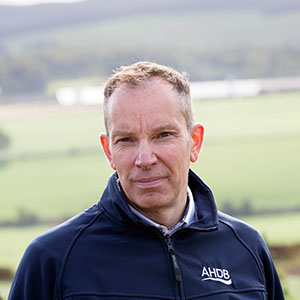Bovaer debate highlights evidence is key in tackling emissions challenge
Monday, 2 December 2024
Last week, Arla announced the launch of its trial on the use of Bovaer, a feed additive that reduces enteric methane emissions from cows by 27%, on average. This has gained a lot of media attention, writes AHDB's Dairy Sector Director Paul Flanagan.
Being part of the conversation
Feed additives to reduce methane are one of the topics currently under debate. AHDB is an active member of Defra's Methane Suppressing Feed Products (MSFP) roundtable, which aims to determine whether feed additives such as Bovaer can be part of the solution to achieving net zero.
AHDB has identified key challenges surrounding the use of MSFPs, which include:
- Measuring and validating the effectiveness of MSFPs for reducing methane
- Farmer and consumer confidence and assurance in the benefits of MSFPs
- How to overcome the cost barrier for farmers to use MSFPs
Calls for better reporting on emissions
Farmers are being asked to produce more for less across multiple public goods (like affordable food, carbon removals and nature recovery), while also experiencing the effects of climate change themselves.
In addition, farmers are seeing the sector criticised domestically for causing the climate crisis. However, when reporting the sector’s impact on the environment, global figures are regularly used which paint a misleading picture into what is happening in Great Britain.
This is why we have been working hard with other organisations to demonstrate the need for dual reporting when it comes to greenhouse gas emissions. Global Warming Potential (GWP) is used to describe the warming potential of a gas over a period of time, compared to carbon dioxide.
GWP100 is currently used, however GWP* better reflects the warming impact of short-lived gases like methane. By reporting on both, it will give a more accurate account of agriculture’s impact on the environment. For example, GWP* shows no additional warming has occurred from UK methane emissions over the last 20 years.
AHDB’s role
The challenge around agricultural emissions isn’t going to go away. At AHDB, we believe we have an important role in supplying industry and government with the evidence and data to inform any decisions they make that could affect our levy payers.
We also sit on advisory groups run by the Climate Change Committee, which will be publishing its seventh carbon budget soon. With the evidence we have, we are asking others on these groups to look beyond the boundaries of the UK, at the increase in global demand for livestock products and consider how the UK is well placed to serve this increase in global demand because of our environmental credentials.
AHDB’s goals
In terms of the environment, we want to redefine:
- How farmers are recognised for delivering both food and environmental goods
- The environmental impact of agriculture in Great Britain
- The scale and potential of natural carbon stocks and sequestration
- The industry’s progress towards net zero
Our baselining pilot will help do that, working with 170 farmers and growers across Great Britain to measure the true environmental impact of agriculture.
As well as measuring emissions, the pilot will help industry demonstrate how it delivers a collection of public goods, benefiting all of society, such as improving water quality, reducing greenhouse gases, building carbon stocks, enhancing soil health and supporting biodiversity both above and below ground.
The pilot will demonstrate the true environmental impact of agriculture in Great Britain, the scale and potential of natural carbon stocks and the industry’s progress towards net zero. The debate surrounding Bovaer further highlights why this work is so important.
All this underpins our promotion of British dairy and red meat as part of a balanced diet to 65 million people here in the UK through our marketing campaigns and 8 billion people around the world through our exports activity.
AHDB is dedicated to representing agriculture and being part of the conversation by providing evidence and data to decision makers. It is critical that as a sector we are unified and take the right actions based on hard evidence – we won’t let others determine our story and fate.


